Living With Alzheimer’s: What to Expect on the Journey
Anyone affected by Alzheimer’s disease knows how challenging and debilitating it can be, especially as the condition advances from early to late stage. People diagnosed with Alzheimer’s, as well as their caregivers, often wonder what their journey will look like once they learn of their diagnosis.
We wanted to understand what that journey with Alzheimer’s looks like, so we asked our community members to share their experiences. For the 2019 Alzheimer’s Disease In America Survey, we gathered insights from 63 people who are currently living with the disease and 305 caregivers. Below are some highlights from what our community shared with us.
Getting the Alzheimer’s diagnosis
Getting an Alzheimer’s diagnosis is not always easy. There are a number of conditions that present with similar cognitive symptoms, which are often described by the broad term “dementia.” Alzheimer’s disease is one type of dementia, and it accounts for 60 to 80 percent of all cases of dementia. In our survey, 45 percent of respondents were diagnosed with Alzheimer’s disease.1-3
Most people who are diagnosed with Alzheimer’s are 65 years old or older. Of respondents that completed our survey, the average age that people started to experience symptoms was 71.9 years old. The average age of diagnosis was 72.6 years old.3
Symptoms go beyond memory loss
People with Alzheimer’s disease mainly struggle with cognitive impairments: problems with thinking, memory, and judgment. However, there are also other types of symptoms that may be overlooked, such as fatigue, balance issues, vision issues, sleep issues, and loss of interest in activities, to name a few.4-6
Our respondents reported the following as the top cognitive symptoms affecting them: memory issues (93 percent), trouble processing information (85 percent), and difficulty concentrating (78 percent).
Symptoms can impact quality of life
Alzheimer’s is a debilitating disease that worsens over time. It is common for people with Alzheimer’s to feel like they miss their “old self” – a self that might have been able to drive, get dressed without help, or do other activities that they used to be able to do. Over 6 in 10 respondents with Alzheimer’s feel frustrated that they cannot do those things they used to be able to do because of their condition.7
Additionally, many people with Alzheimer’s worry about the impact their condition will have on their loved ones. Over 50 percent of respondents with Alzheimer’s felt their spouse or partner treats them differently since diagnosis – more so than other family and friends.
The disease affects all aspects of someone’s life, especially as it progresses. However, there may be ways to help cope with the loss of the “old self.” Respondents reported that they have made some lifestyle changes since diagnosis. Top lifestyle changes among our respondents were socializing with others (70 percent), praying and/or being spiritual (53 percent), listening to music (45 percent), participating in pet therapy (45 percent), and exercising regularly (36 percent).
Caregivers play a large role in Alzheimer’s journey
As the disease worsens, the role of the caregiver becomes more important than ever. In the early stages of Alzheimer’s disease, a person may only need some assistance or emotional support. As time goes on, daily routines need to be established and behavior, communication, ability to do everyday tasks, feeding, toileting, and dressing will all need to be dealt with as necessary. In late-stage Alzheimer’s, caregivers often need to provide round-the-clock care, which can be physically and emotionally draining.8-10
Respondents with Alzheimer's said the person who helped the most with their care is their:
- Spouse/significant other (59 percent)
- Child (38 percent)
- Sibling (16 percent)
These loved ones aren’t professionals and they don’t get training, so it makes sense that they may not always know the right thing to do.
When we asked respondents with Alzheimer’s to give advice to their caregivers, many simply said to be more patient with them. A number of respondents also simply said “thank you.” They recognize how difficult this job can be for caregivers, and they want their loved ones to know that the care is appreciated.
The 2019 Alzheimer’s Disease in America survey was conducted online from February through June 2019. The survey was completed by 581 people:
- 63 who have been diagnosed with Alzheimer’s disease
- 305 current caregivers of people with Alzheimer’s
- 213 caregivers of people with Alzheimer’s who have passed away
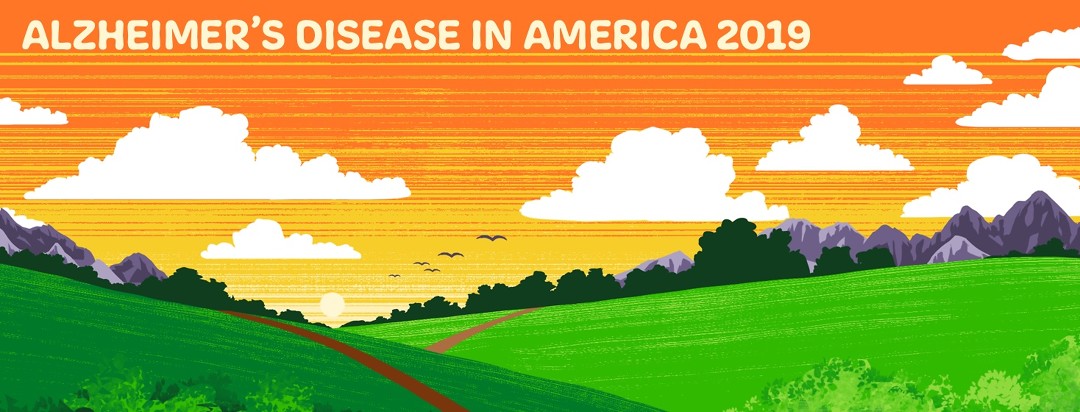
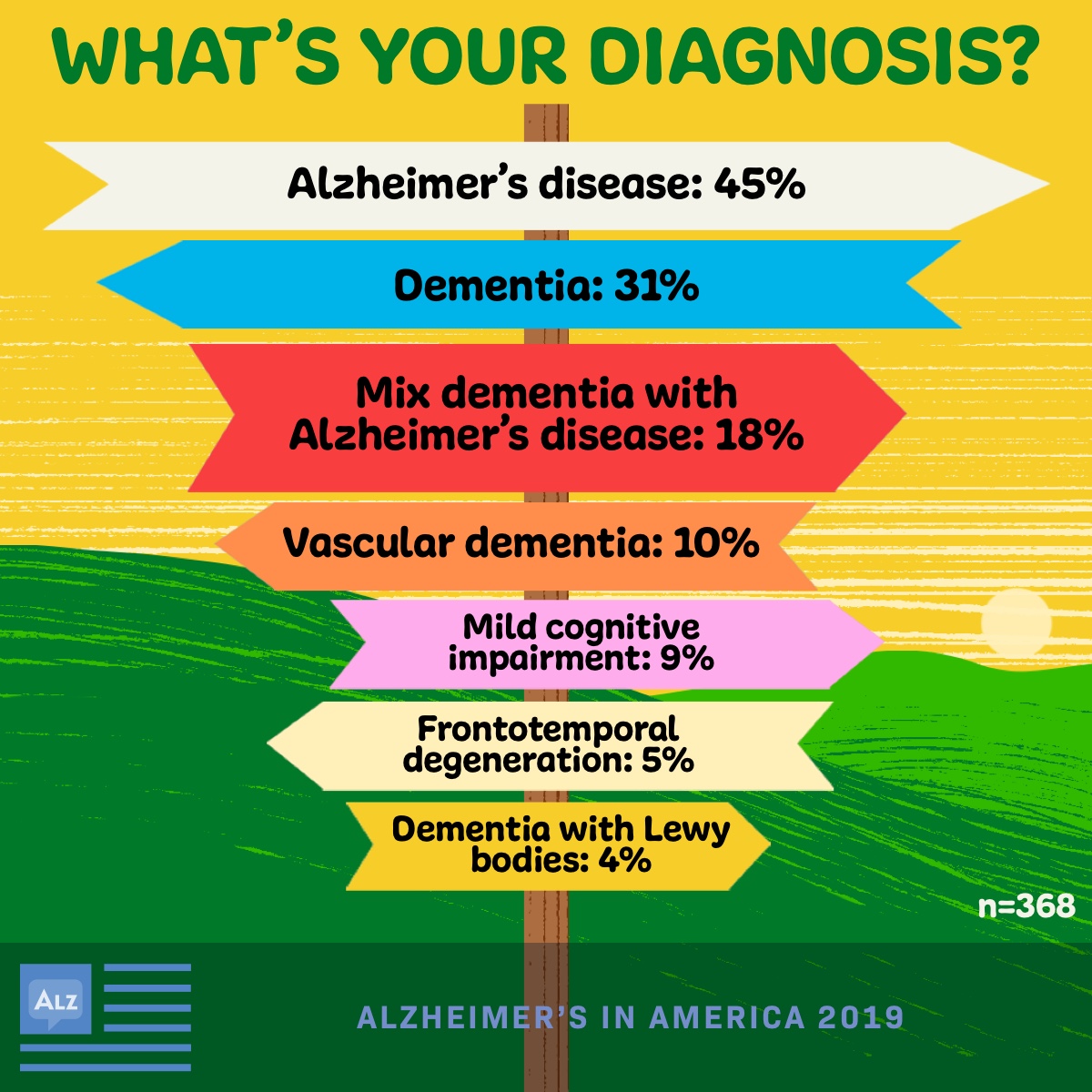
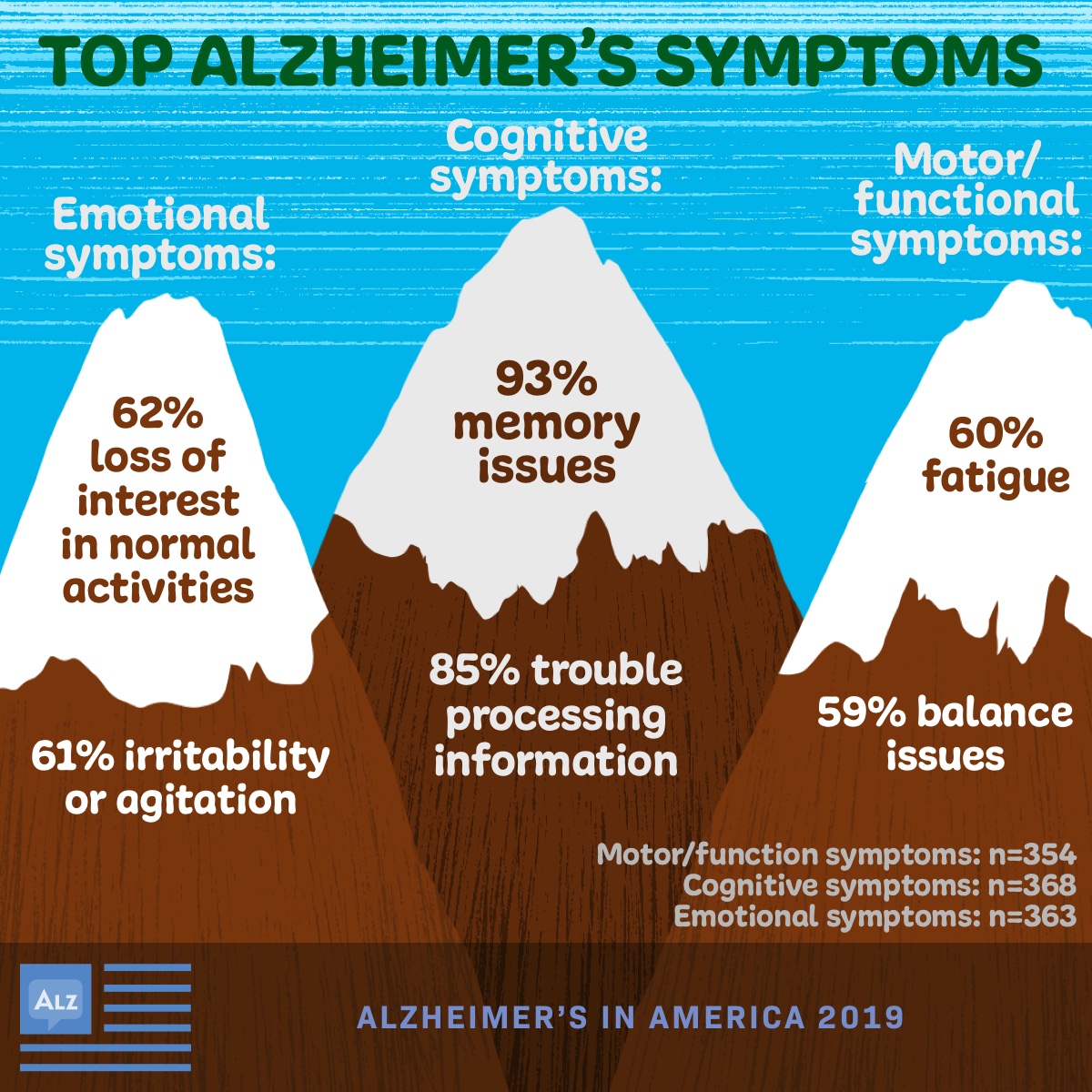
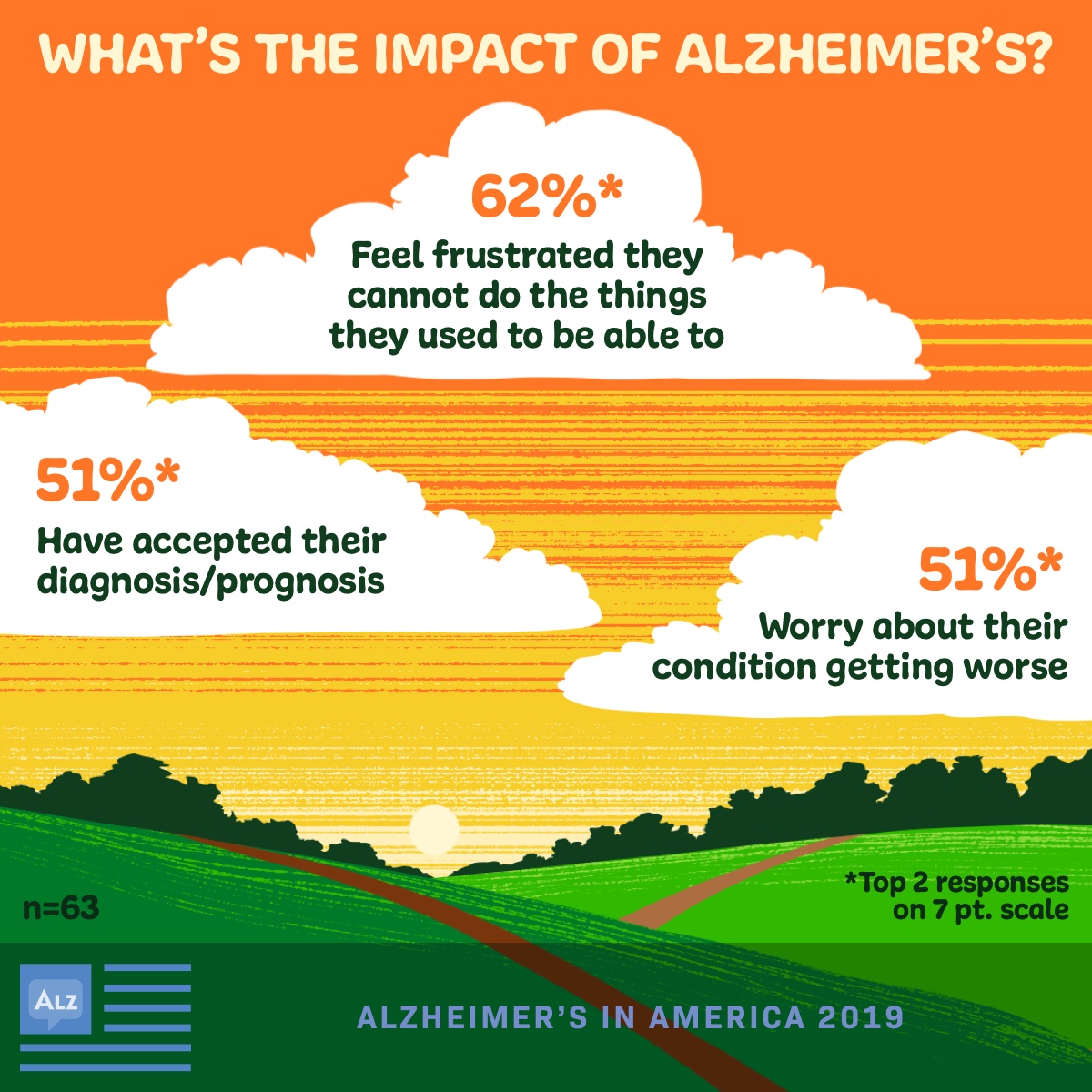
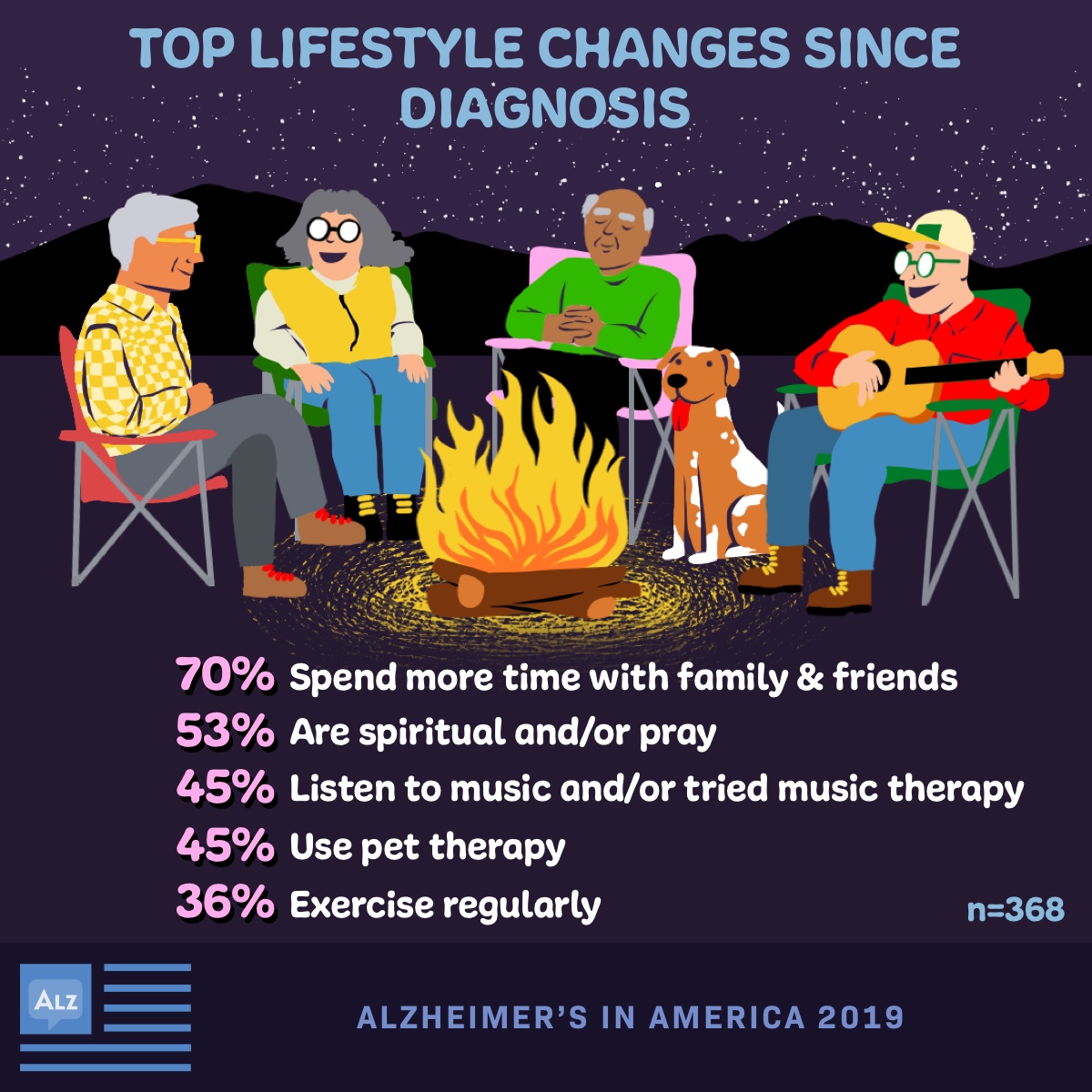
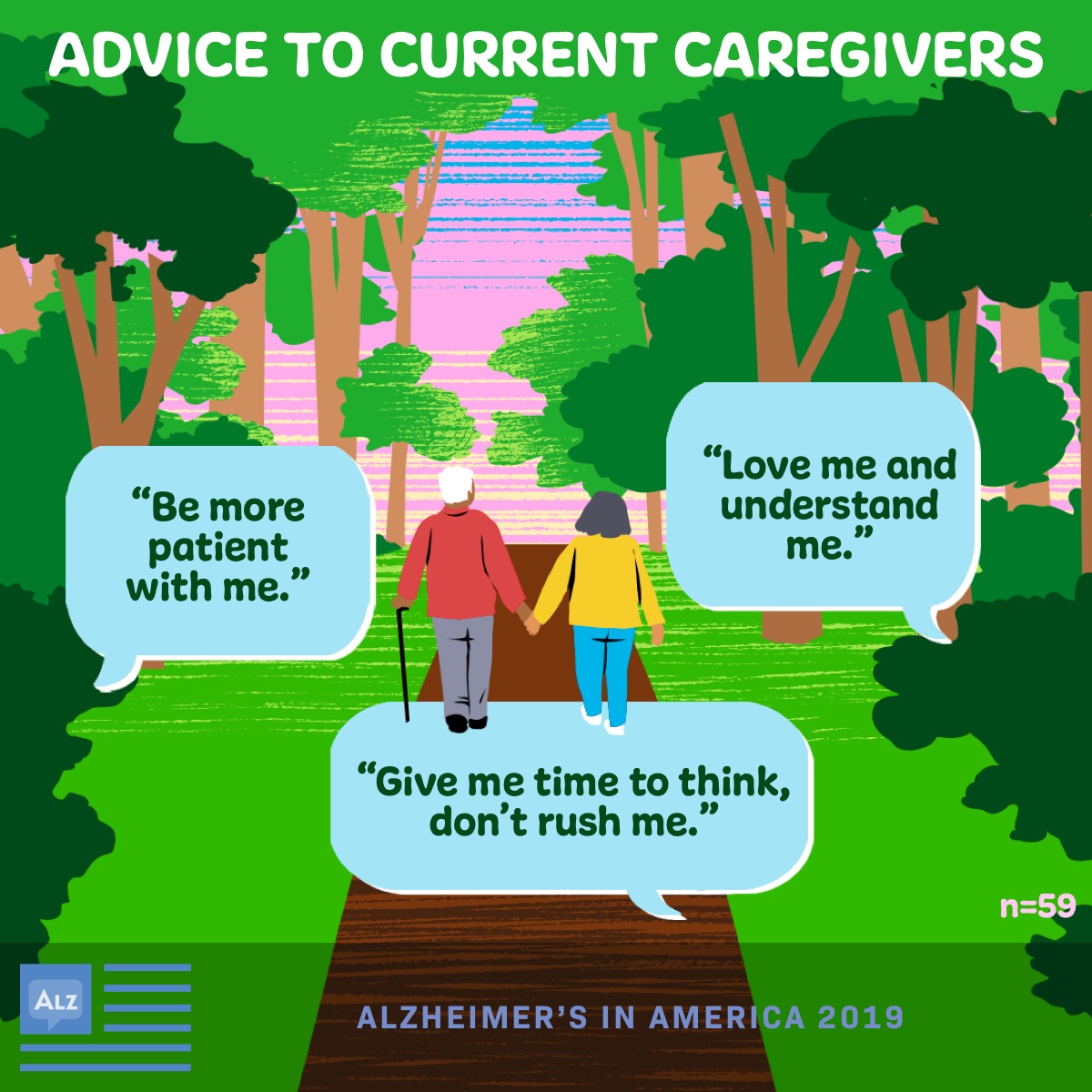
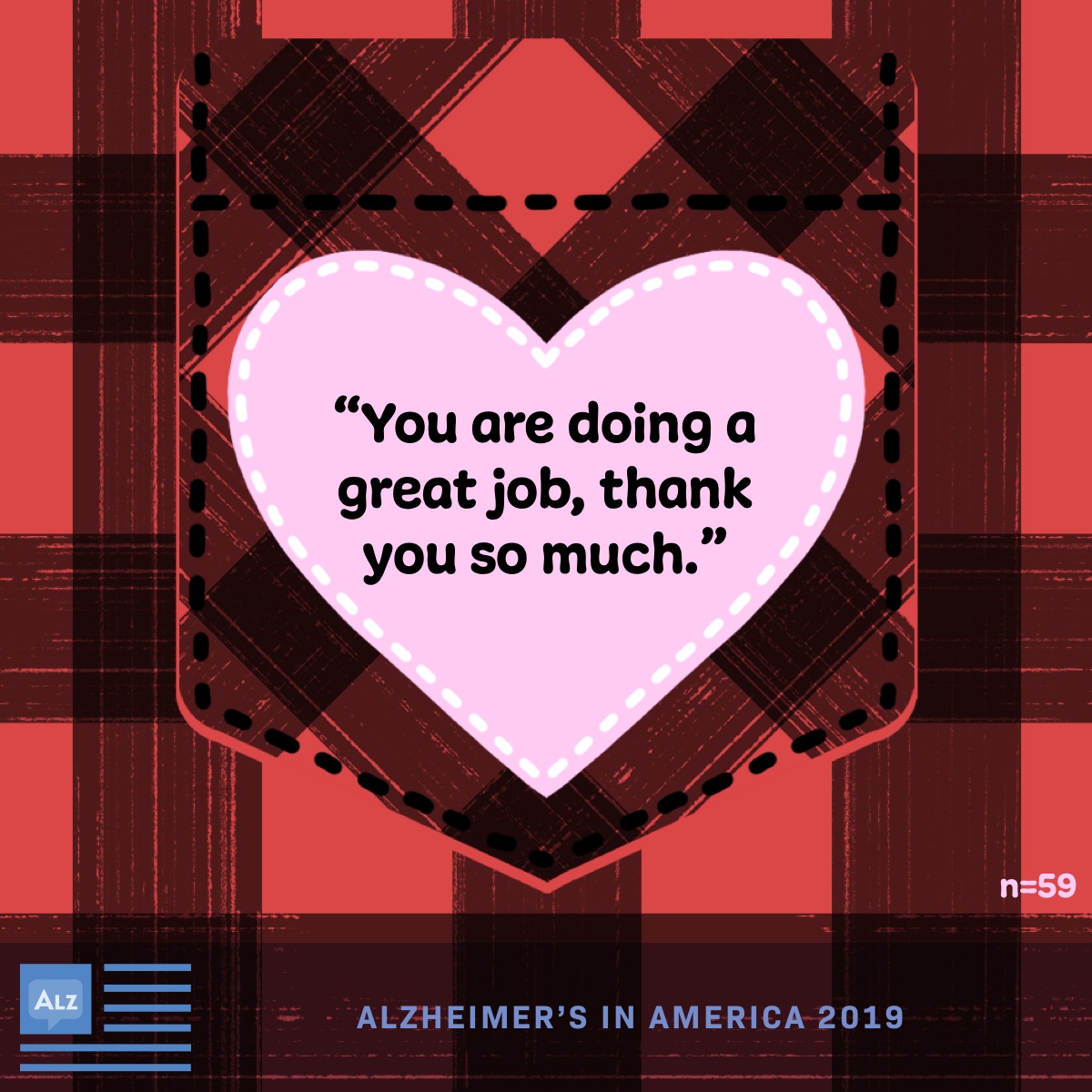
Join the conversation